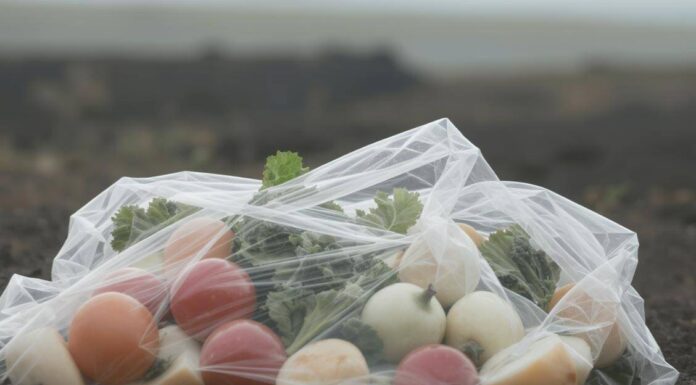Plastic and vegetables: a toxic cocktail on our plates
For exemple, in Switzerland, nearly 8’000 tons of plastic are used each year in the agricultural sector, according to the Federal Office for the Environment (FOEN). These plastics are mainly used for packaging, mulching, irrigation, and transportation of vegetables. The problem: once degraded, they release microplastics that contaminate the soil, water, and ultimately, our crops. A study conducted by Eawag in 2023 revealed the presence of microplastics in more than 60% of vegetable samples taken from Swiss territory. Carrots, potatoes, and salads are particularly affected.
Zurich researchers warn: these plastic particles are not just inert waste. They bind to pollutants and penetrate plant tissues, reaching the end consumer. On the health side, the World Health Organization (WHO) now recognizes a link between chronic exposure to microplastics and the increase of certain diseases, such as hormonal disorders or digestive inflammations. In Switzerland, the question becomes political: should the use of plastic in the food sector be more strictly regulated?
Switzerland, often cited as an example for the quality of its agriculture, is not immune. Vegetable imports, especially from Spain and Italy, exacerbate the problem: in these countries, the massive use of plastic for greenhouse crops and intensive packaging increases the risk of contamination. Faced with this reality, the vigilance of Swiss consumers sharpens, but the lack of transparency on the traceability of plastic in food remains glaring.
Limiting exposure to plastic in food: what strategies?
To avoid plastic in vegetables, the first rule is to favor bulk and local markets. In Switzerland, many organic farms commit to banning single-use plastics from production to sale. A report from the Fédération romande des consommateurs (FRC) highlights that farmer’s baskets, delivered without plastic packaging, are attracting more and more urban households. Another track: favor local and seasonal varieties, less likely to be packaged in plastic or transported over long distances.
Some Swiss supermarkets are testing compostable or recyclable alternatives, but vigilance remains necessary. “Plastic-free” labels are multiplying, but their reliability is not always guaranteed. Experts recommend thoroughly washing vegetables, even organic ones, to eliminate some of the residues of plastic and pollutants. Finally, refusing plastic bags at the checkout (still allowed in some stores) is a simple but essential gesture.
Plastic, food, and diseases: the vicious circle
The impact of plastic on food goes far beyond simple visual pollution. Microplastics can act as vectors of chemical contaminants, disrupting the intestinal flora and increasing the risks of chronic diseases. In Switzerland, some doctors, like Dr. Jérôme Pasquier (CHUV), alert about the increase in allergies and inflammatory diseases related to food exposure to plastics. Awareness is there, but research still lacks perspective to measure all the long-term effects.
Rethinking our habits to get out of the all-plastic
Facing the urgency, solutions exist but require collective mobilization. In Switzerland, some municipalities are testing deposit systems for vegetable crates, while producer cooperatives are investing in biodegradable alternatives to plastic. Swiss innovation, known for its rigor, can play a driving role in Europe. But nothing will change without strong citizen pressure: demand transparency on the presence of plastic in food, support sustainable sectors, boycott recalcitrant brands.
Changing our habits also means refusing the inevitability of a world saturated with plastic and diseases. The climate generation, which I am part of, refuses to eat contaminated vegetables. Together, let’s make “plastic-free” the new standard in our markets, on our plates, and even in the laws that protect our health.
Sources
https://www.bafu.admin.ch/bafu/fr/home/themes/dechets/dossiers/microplastique…
https://www.eawag.ch/fr/news-agenda/news-portal/news-detail/plastiques-dans-l…
https://www.frc.ch/emballages-plastiques-dans-lagroalimentaire/
https://www.who.int/fr/news-room/fact-sheets/detail/microplastics-in-food
https://www.bafu.admin.ch/bafu/fr/home/themes/dechets/dossiers/microplastique…
https://www.eawag.ch/fr/news-agenda/news-portal/news-detail/plastiques-dans-l…
https://www.frc.ch/emballages-plastiques-dans-lagroalimentaire/
https://www.who.int/fr/news-room/fact-sheets/detail/microplastics-in-food



